Life
Sign up for our newsletter
We summarize the week's scientific breakthroughs every Thursday.
-
 Neuroscience
Neuroscience‘Do I Know You?’ explores face blindness and the science of the mind
In her memoir, journalist Sadie Dingfelder draws on her own experiences to highlight the astonishing diversity of people’s inner lives.
-
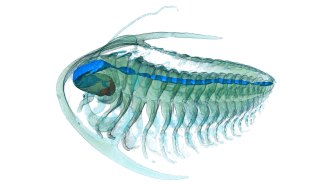 Paleontology
PaleontologyStunning trilobite fossils include soft tissues never seen before
Well-preserved fossils from Morocco help paleontologists understand the weird way trilobites ate and perhaps why these iconic animals went extinct.
-
 Paleontology
PaleontologyThe last woolly mammoths offer new clues to why the species went extinct
The last population of woolly mammoths did not go extinct 4,000 years ago from inbreeding, a new analysis shows.
By Claire Yuan -
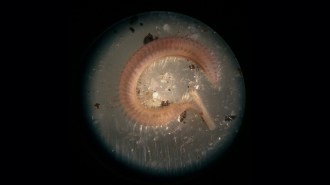 Animals
AnimalsBeneficial bacteria help these marine worms survive extreme cold
Three species of marine worms living in Antarctic waters have beneficial relationships with bacteria that produce antifreeze proteins.
-
 Neuroscience
NeurosciencePain may take different pathways in men and women
Sex differences in the function of nerve cells in mice, monkeys and humans suggest a new way to treat pain conditions.
By Claire Yuan -
 Animals
AnimalsCan leeches leap? New video may help answer that debate
For some, it’s the stuff of nightmares. But a grad student’s serendipitous cell phone video might resolve a long-running debate over leech acrobatics.
By Susan Milius -
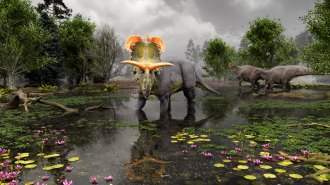 Paleontology
PaleontologyMeet Lokiceratops, a newly discovered species of horned dinosaur
Found in Montana’s badlands, Lokiceratops had two large, bladelike horns jutting forward and out from between its eyes.
-
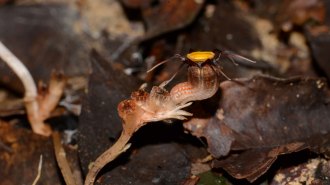 Plants
PlantsThis tentacled, parasitic ‘fairy lantern’ plant is new to science
The bizarre new plant from Malaysia parasitizes subterranean fungi and only briefly erupts from the soil to flower.
By Jake Buehler -
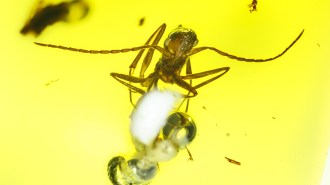 Paleontology
PaleontologyEarly ants may have had complex social lives, fossil data suggests
The earliest ants may have been primed for a highly social life — 100 million years ago, the insects had antennae tuned to key communication functions.
By Jake Buehler -
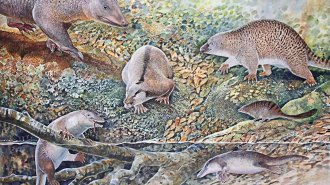 Paleontology
Paleontology‘Echidnapus’ hints at a lost age of egg-laying mammals
The fossil discoveries double the number of known monotreme species during the Cretaceous Period.
-
 Anthropology
AnthropologyChild sacrifices at famed Maya site were all boys, many closely related
DNA analysis shows victims in one underground chamber at Chichén Itzá included twins, perhaps representing mythological figures.
By Bruce Bower -
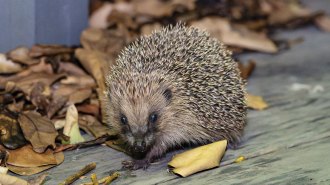 Animals
Animals‘Cull of the Wild’ questions sacrificing wildlife in the name of conservation
In his new book, ecologist Hugh Warwick seeks middle ground in the waging battle that is wildlife management.